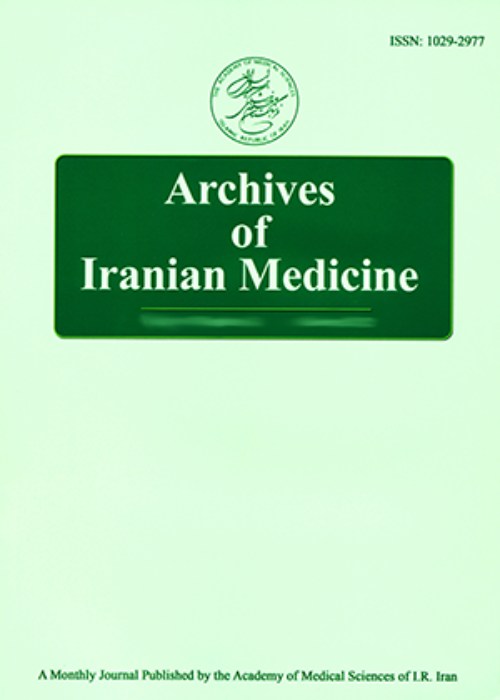Superstitious Beliefs among Psychiatric Patients in Kerman, Iran
Author(s):
A. Ghaffari , Nejad , F. Pouya , M.R. Kashani
Abstract:
Background – Superstition, the belief in supernatural causes of events, is common in our society and is sometimes associated with religious beliefs. Some psychiatric patients attribute their mental illness to supernatural causes, which can prevent them from benefiting from appropriate medications. They either discontinue medication and refer to Doa-Nevees, a person who writes prayers and amulets, and is known as a traditional healer, or seek superstitious treatments prior to psychiatric treatment. This study was performed to determine the frequency of beliefs in superstitious causes of mental illnesses among the psychiatric patients hospitalized in Beheshti Hospital, Kerman, Iran. Methods – In this descriptive study, 99 consecutive psychiatric in-patients were selected in Beheshti Hospital, Kerman, Iran from April 2000 to July 2000. Patients aged 17 to 70 years old (mean age ± SD, 32.2 ± 8.9 years). The goal of the study was explained to all patients and they were enrolled into the study with complete consent. Subjects were questioned using a researcher-made questionnaire consisting of 15 items, which had been based on the researcher’s clinical experience with psychiatric patients, and whose validity and reliability had been proved. Statistical analysis was done using Epi-info 6 computer application and Chi-square test.Results – The ratio of male/female was 1:1. Of all studied patients, 77.8% believed in superstitious causes of their illnesses and 60.7% had received some superstitious treatment. Forty-six (88.4%) of male and 31 (65.9%) of female patients believed in superstitious causes of their mental illness showing a significant difference in this regard between males and females (p < 0.008). Similarly, 37 (71.1%) of male and 23 (48.9%) of female patients had sought superstitious treatments, which showed a significant difference between these two groups in seeking superstitious treatments (p < 0.003). Nonpsychotic patients showed a higher inclination for superstitious treatments compared with psychotic ones. The rate of superstitious beliefs and seeking of related treatments were lower in patients with higher levels of education. Conclusion – Superstitious beliefs regarding the nature and treatment of mental illnesses may postpone effective psychiatric treatment and damage patients.
Language:
English
Published:
Archives of Iranian Medicine, Volume:6 Issue: 3, Jul 2003
Page:
184
magiran.com/p626456
دانلود و مطالعه متن این مقاله با یکی از روشهای زیر امکان پذیر است:
اشتراک شخصی
با عضویت و پرداخت آنلاین حق اشتراک یکساله به مبلغ 1,390,000ريال میتوانید 70 عنوان مطلب دانلود کنید!
اشتراک سازمانی
به کتابخانه دانشگاه یا محل کار خود پیشنهاد کنید تا اشتراک سازمانی این پایگاه را برای دسترسی نامحدود همه کاربران به متن مطالب تهیه نمایند!
توجه!
- حق عضویت دریافتی صرف حمایت از نشریات عضو و نگهداری، تکمیل و توسعه مگیران میشود.
- پرداخت حق اشتراک و دانلود مقالات اجازه بازنشر آن در سایر رسانههای چاپی و دیجیتال را به کاربر نمیدهد.
In order to view content subscription is required
Personal subscription
Subscribe magiran.com for 70 € euros via PayPal and download 70 articles during a year.
Organization subscription
Please contact us to subscribe your university or library for unlimited access!


